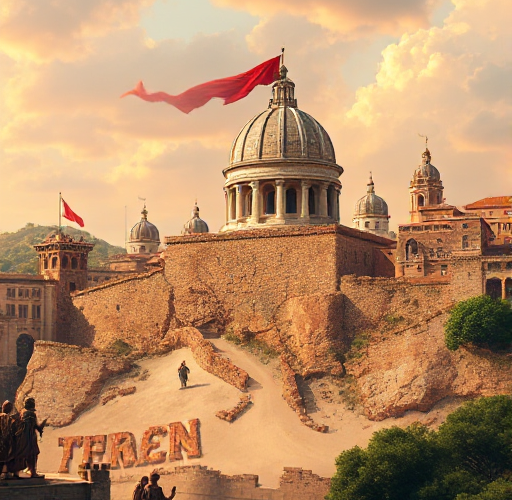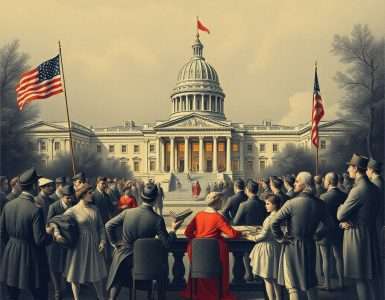Then there’s the economy. The empire was like a massive machine that needed oil to keep running smoothly. Economic troubles crept in, fueled by heavy taxation and overreliance on slave labor, which stunted innovation. Imagine running a bakery where everyone expects free bread—you’d run out of flour pretty fast!
And let’s not forget about the role of barbarian invasions. The empire was essentially a buffet, and neighboring tribes couldn’t resist. Groups like the Visigoths and Vandals took advantage of the empire’s vulnerabilities, much like hungry bears breaking into a campsite. This not only led to territorial losses but also sparked fear and panic within Roman boundaries.
Lastly, cultural shifts played a significant role. As Romans became more engrossed in entertainment and less focused on civic duties, their once-proud identity started to fade. It’s akin to a once-thriving garden that grows wild when neglected, overtaken by weeds of apathy.
All these elements intertwined, creating a perfect storm that eventually overwhelmed even the mightiest empire. It’s a stark reminder that even the strongest foundations can crumble under the weight of neglect and disunity.
Major Factors Behind the Decline
First off, let’s talk about technological advancements. In an age where a smartphone can outsmart even the brightest of minds, companies that can’t keep up with tech are like ships without sails. They get left behind as competitors harness the power of AI and automation to streamline operations and enhance customer experiences. Without innovation, businesses become like old flip phones in a world of smartphones—outdated and easily forgotten.
Next up, there’s consumer behavior. Remember when we couldn’t resist the charms of blockbuster movies? As streaming services have taken over, traditional theaters have seen a noticeable dip in attendance. People are bombarded with choices and often opt for convenience over experience. If a brand can no longer resonate with its audience, it risks fading into obscurity—a forgotten relic of the past.
Then, think about the economic landscape. With rising inflation and economic uncertainty, consumers tend to tighten their purse strings. This shift in spending habits can punch a big hole in the revenue streams of many companies. When profit margins shrink, it feels a lot like running a marathon and suddenly hitting a wall—it’s tough to push through.
Lastly, consider the rise of social consciousness. Today’s consumers are more aware than ever, making choices that align with their values. Brands that neglect sustainability or ethical practices might as well be shouting into the void—consumers won’t support them. So, it’s essential for companies to adapt and thrive in a world where values matter just as much as the bottom line.
Effects on European History
Now, let’s not forget the impact of the Industrial Revolution. It was like tossing a huge boulder into a still pond, creating ripples that reached far beyond the factories and urban centers. This shift transformed European economies and societies, igniting urbanization and altering daily life. You could argue that it was the engine that powered the rise of modern nations, redefining how people worked and lived.
Then we have the World Wars, a heart-wrenching chapter that left an indelible mark on Europe’s psyche. Imagine waking up to a world forever changed, where borders were redrawn and ideologies clashed. These conflicts led to a surge of nationalism and the reimagining of power structures, creating a new European order. Not only did they reshape political boundaries, but they also inspired movements for peace and unity, such as the European Union, which was built on the ashes of division.
And what about the influence of colonialism? European powers dashed across the globe, planting flags and forging empires, which brought both wealth and chaos. This legacy still resonates today, shaping cultures and economies and even prompting waves of migration that have enriched the European tapestry even further. Every choice made, every battle fought, and every idea shared has rippled through time, creating a profoundly interconnected narrative that continues to evolve.

























Add comment